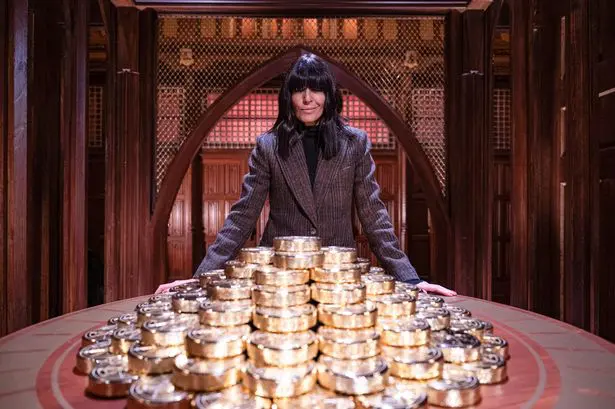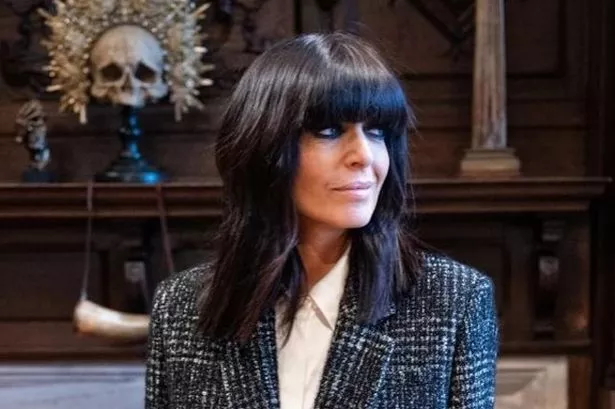The finale of The Traitors had audiences on the edge of their seats, showcasing the tension and drama that has made this series a cultural phenomenon. As viewers tuned in each week, they witnessed the exhilarating interplay of manipulation, strategy, and raw emotion. The stakes were incredibly high with a prize of £120,000 at hand, ensuring that both contestants and viewers were swept up in the thrill.
This third season of The Traitors, hosted by the incomparable Claudia Winkleman, has been a saving grace during the frost of January. Like many fans, it’s almost painful to reflect on the series ending, given the compelling characters, intense competitions, and gut-wrenching eliminations. With unforgettable moments that had us leaning into our screens, the finale beautifully wrapped up a season that truly outshone other reality TV offerings.
The Allure of The Traitors
There’s a unique allure to The Traitors that stands head and shoulders above conventional reality shows like Love Island or I’m a Celeb. It isn’t merely about dating or survival in a jungle; it’s about the underlying current of deceit that permeates every interaction. Contestants engage in a psychological game of cat-and-mouse; the thrill lies in who can successfully navigate alliances, betrayals, and the looming shadow of elimination.
This season captivated audiences with its assortment of characters, each vying for their chance at £120,000. The strategies were complex, and certainly more stimulating than going on dates or dealing with reality show clichés. For instance, watching Jake’s seemingly lucky beginnings wilt under pressure highlighted the unpredictable nature of reality TV.
Ultimately, the show’s innovative twists and immersive game scenarios set the stage for memorable entertainment. What made this particular season resonate so profoundly was the relatable portrayal of human emotions, from jealousy to betrayal. It felt less like a production and more a reflection of the diverse cast’s psychological landscape.

Relatable Contestants and Unforgettable Moments
The dynamic host Claudia Winkleman brought her unique charm and wit, often elevating moments of tension with her characteristic flair. One could argue that Winkleman has become as iconic as the series itself. Her interactions with contestants intensified the viewing experience, making us feel a part of the unfolding drama.
Throughout the season, we met a myriad of contestants who each brought their flair to the competition. From ‘arch-liar’ Charlotte to the undeniably genuine Alexander, viewers found themselves invested not just in the competition, but in the personal stories that emerged within the group. This series allows audiences to witness the humanity behind the game, often leading to tears and confessions as players grappled with emotions stemming from their gameplay.
For example, the emotional turmoil experienced by Linda following a fellow contestant’s departure became a talking point among viewers, showcasing the weight of betrayal even in a game setting. These moments provided the series with a depth often lacking in rival reality shows.
Tension and Drama in the Final Episodes
The heart-stopping tension reached its peak by the finale, where contestants faced off against their peers in a decisive showdown. Previous episodes had built up to this climactic point, with contestants making strategic decisions that would ultimately lead them to success or failure. As the finale unfolded, spectators were reminded of the fierce competition that has defined the show since its inception.
Throughout the season, multiple plot twists kept viewers guessing. Those who thought they could predict the outcome found themselves surprised time and again. This element of surprise is vital to the show’s success, as every player must continually adjust their strategies to remain in the game. Witnessing the psychological manipulation at play not only entertained but also offered insights into human behavior.
Furthermore, the sensation of camaraderie among viewers was palpable. Social media lit up as conversations about contestants’ antics unfolded live. Tweets, memes, and Facebook posts proliferated, showcasing how audiences became part of the narrative. It exemplifies how The Traitors has transcended being merely a show and morphed into a communal experience for fans.

The Legacy of The Traitors
The Traitors has secured its position as a cultural touchstone within the realm of reality television, arguably ranking among the best British reality shows. Its unique format, based on classic party games such as Mafia, has created a visceral and engaging experience for contestants and viewers alike. Each season acts as a reminder of the manipulation and cunning present within human nature.
Beyond just entertainment, the series has engaged audiences in deeper conversations about morality and trust. The portrayal of real-life dilemmas through the guise of a game leaves viewers to reflect on their strategies in interpersonal relationships day by day. Given the competitive nature of the game, there lies a profound exploration of how far individuals will go to achieve their desires.
The compelling narratives woven throughout the episodes ensure that discussions about the series resonate long after each season concludes. It’s not just about the wins and losses; it’s also about the sociocultural implications.
A New Era for Reality TV
As The Traitors continues to mesmerize viewers with its blend of deception, strategy, and raw authenticity, its impact on reality television cannot be understated. The show has transformed the way audiences interact with the medium, encouraging them to engage with the content more deeply than ever before. Each episode encourages speculation, discussions, and theories about contestants’ motivations and possible outcomes.
This series stands as an example of how competition can foster connections among both contestants and viewers. It taps into the primal instincts of betrayal, alliance, and strategy, which earns it a rightful place in the canon of must-watch television. Such commitment to exploring the darker sides of human nature gives it an edge over tired formats.
The future looks bright for The Traitors. With fans eagerly anticipating more engaging seasons, it remains punctually timely to discuss the ripple effect the show has had on entertainment as a whole. There’s no denying the captivating journey this reality show has propelled its audience into, as it consistently reshapes expectations.

Community and Conversation
The communal experience surrounding The Traitors extends far beyond the episodes themselves. Social media platforms have become the battleground for discussions, memes, and fan theories, creating a buzz that keeps the spirit of the show alive even when it’s off-air. Fans share their emotional responses, savvy memes, and callouts in real-time, creating a vibrant culture around the series.
Hashtags related to the show often trend, showcasing the immense impact it has on popular culture. By tapping into this communal energy, the audience forms a deep bond with one another, akin to the contestants who tirelessly attempt to navigate interpersonal relationships within the show.
Even in a world filled with scripted entertainment and polished reality, shows like The Traitors remind us of the raw essence that real human connections provide. This cultural phenomenon has thrived not just from its storytelling but from its ability to resonate with viewers, fostering a genuine community surrounding its narrative.
I’m Mikael, a 35-year-old Gossip Gravity Creator. I’m passionate about curating captivating content that sparks conversations and ignites curiosity. Join me on this exciting journey as we explore the fascinating world of gossip and trends together!


